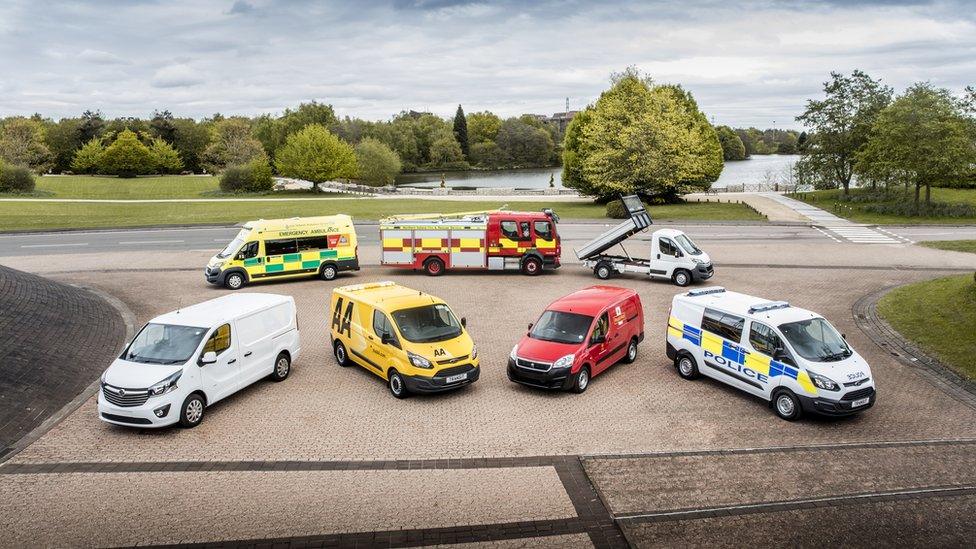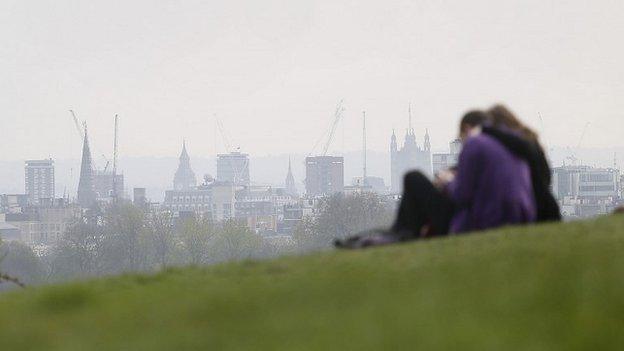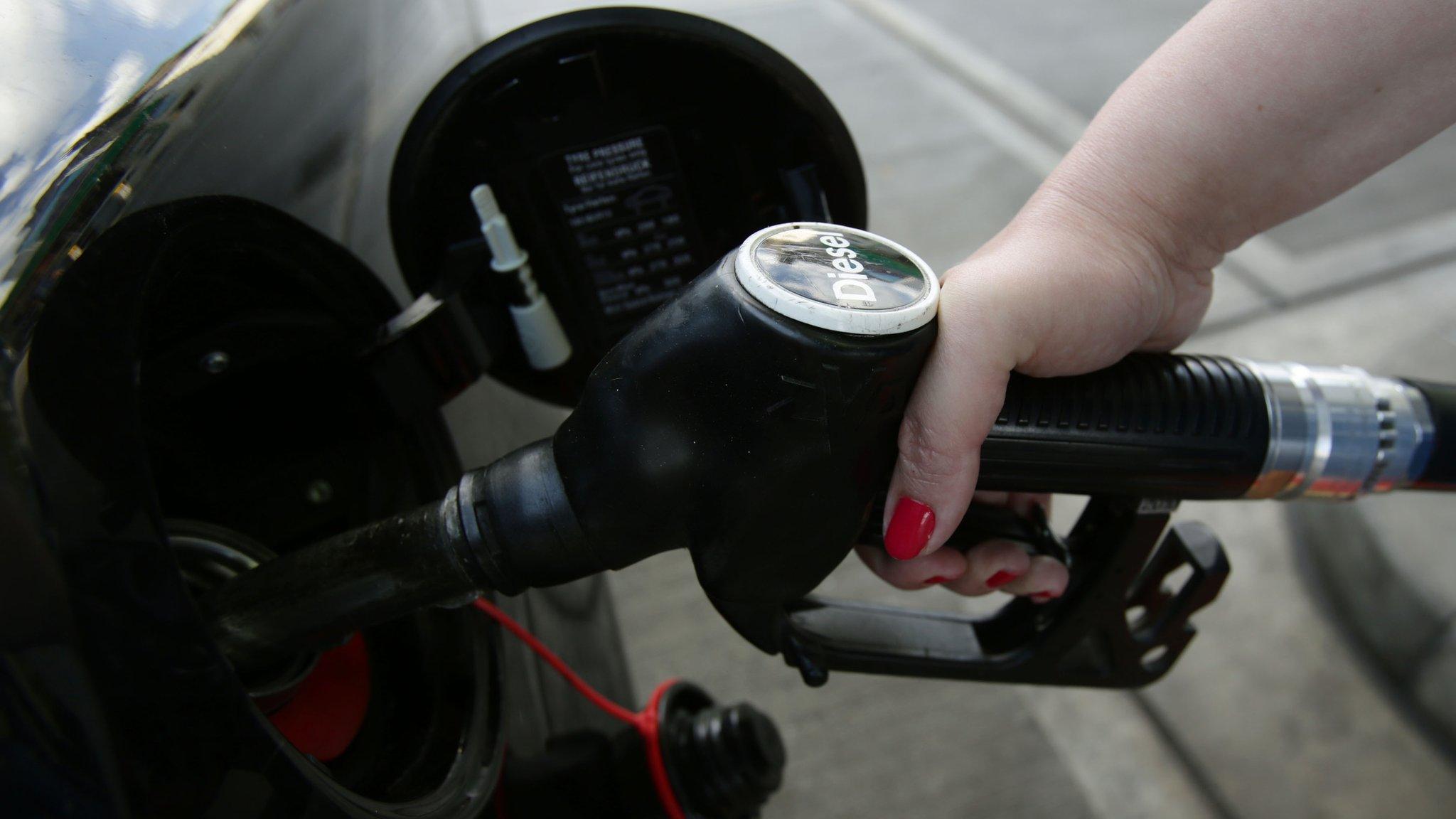Diesel vehicles important for UK economy, says industry
- Published

The motor industry's fight-back against growing opposition to diesel has moved up a gear with a strong defence of commercial vehicles.
The industry's trade body has warned people not to ignore the "essential role" diesel commercial vehicles play in keeping the UK economy moving.
The Society of Motor Manufacturers and Traders also pointed out that emergency vehicles are overwhelmingly diesel.
But "green" groups said it was clear all diesel engines must be phased out.
Diesel vehicles have been under attack since revelations that carmakers falsified emissions data. It has prompted calls for vehicle bans, tax penalties, and scrappage schemes.
The SMMT's defence of the commercial vehicle sector comes at the start of a three-day event that will promote new and cleaner diesel technology.
In a report published to mark the start of the Commercial Vehicle Show, in Birmingham, the SMMT claimed that there are 1.8 million owner-operators dependent on vans for their livelihood.
The report also estimated that UK commercial vehicles contribute £27.5bn to the economy by moving freight alone.
The SMMT said that, on average, modern diesel vans use around 50% less fuel than petrols, which means lower fuel bills for operators and a knock-on benefit for consumers and taxpayers.
Mike Hawes, the SMMT's chief executive, said, "Commercial vehicles play an essential but often overlooked role in keeping Britain functioning, performing jobs and transporting vital goods and services that we all rely on every day.
"This sector has never been so important to the UK economy - and to British jobs - and diesel's role in powering these vital vehicles should not be downplayed. Nearly all our commercial vehicles are driven by diesel."
'Writing on the wall'
But the latest Euro VI standards meant that new diesel vehicles were the cleanest and safest yet, he said.
Mr Hawes also pointed out that diesel was essential for keeping tens of thousands of ambulances, fire engines and police vans on the road.
But his defence of the sector got short shrift from environmental groups, which said it was time to get rid of all internal combustion engines for the benefit of health and quality of life.
Jenny Bates, air pollution campaigner at Friends of the Earth, said: "The motor industry knows that the writing is on the wall.
"Technology is moving so fast that using alternative power for vans should not be a problem," she said, citing efforts made by the bus industry to become cleaner.
"Obviously, we need to ensure emergency services are maintained. But in the end, all vehicle types need to be addressed, even if it doesn't all happen at the same time. It just needs commitment and investment."
- Published24 April 2017

- Published17 April 2017
